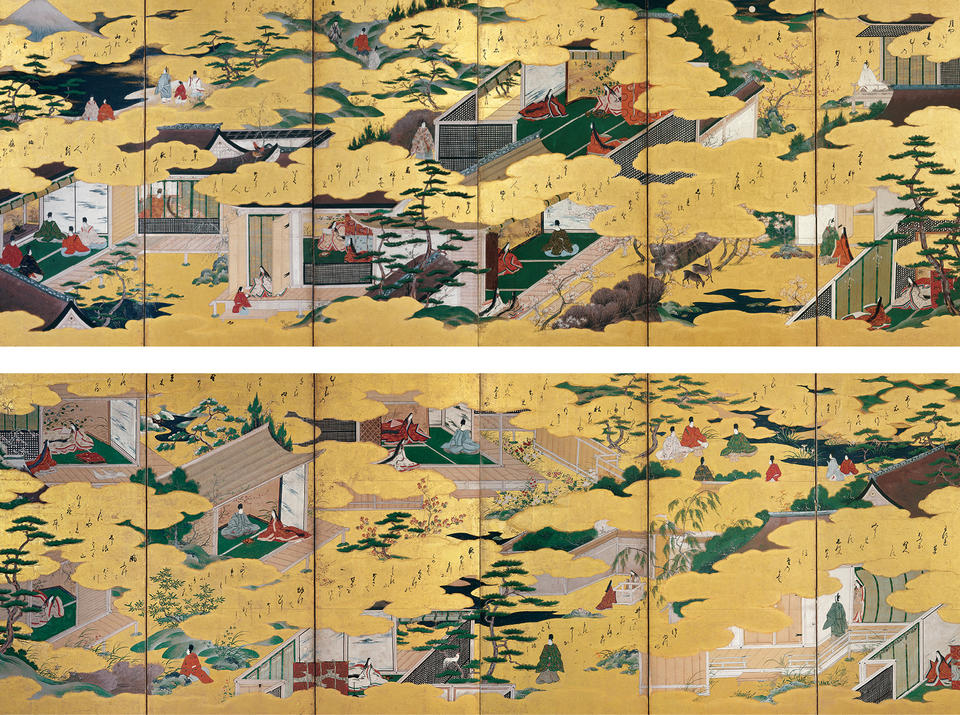Catalogue information
Edo period, 17th century
Pair of six-panel folding screens; ink, color, and gold on gilded paper
Each screen 93.2 x 262.2 cm (36 3/4 in. x 8 ft. 7 1/4 in.)
Literature
See also
- Japanese paintings » Screens by Unidentified Artists of the Momoyama and Edo Periods
- Screens
- Works of the Edo period
This artwork was published as catalogue entry 208 in Volume I of Art through a Lifetime.
Additional details
Text
[from panel 1 of the right screen, reading from right to left, top to bottom]
[Episode 4] Is not the moon the same? / The spring / the spring of the old? / Only this body of mine / is the same body . . .
[Episode 1] Like random patterns of this robe, / dyed with the young purple / from Kasuga Plain— / even thus is the wild disorder / of my yearning heart.
[Episode 27] You will see me / in that pool, / for even frogs / cry in pairs / under the water.
[Episode 17] People call them evanescent, / these cherry blossoms— / yet they have waited / for someone whose visits / are months apart.
[Episode 9] Beside Mount Utsu / in Suruga / I can see you / neither waking / nor, alas, even in my dreams.
[Episode 3] If you love me, / let us sleep together, / though it be in a weed-choked house / with our sleeves / for a mattress.
[Episode 53] Why does the cock / herald the dawn / when the night is yet / deep as this love of mine, / unknown to others?
[Episode 9] Fuji is a mountain / that knows no seasons. / What time does it take this for, / that it should be dappled / with fallen snow?
[Episode 101] Longer than ever before / is the wisteria’s shadow— / how many are those / who shelter beneath / its blossoms?
[Left screen]
[Episode 9] I have a beloved wife, / familiar as the skirt / of a well-worn robe. / And so this distant journeying / fills my heart with grief.
[Episode 100] Though the fields may seem / o’ergrown with forgetting grass, / this is the herb of remembrance— / and remembering, / I look to the future.
[Episode 51] If it has been well planted, / it will fail to bloom / only if autumn should fail to come. / And though the petals scatter / its roots will never die.
[Episode 23] My height that we measured / at the well curb / has, it seems, / passed the old mark / since last I saw you.
[Episode 14] When daylight comes / I shall toss him in the cistern— / that miserable rooster / who crows too soon / and drives my lover away.
[Episode 41] When the murasaki’s hue / is strong and deep, / one can distinguish / no other plant / on the vast plain.
[Episode 96]: “In autumn . . . ,” I said, / but it was not to be— / Our relationship has proved no deeper / than a shallow creek / strewn with fallen leaves.
[Episode 23] If wind blows, / white waves will rise at Tatsutayama— / Shall you be crossing / quite alone by night?



